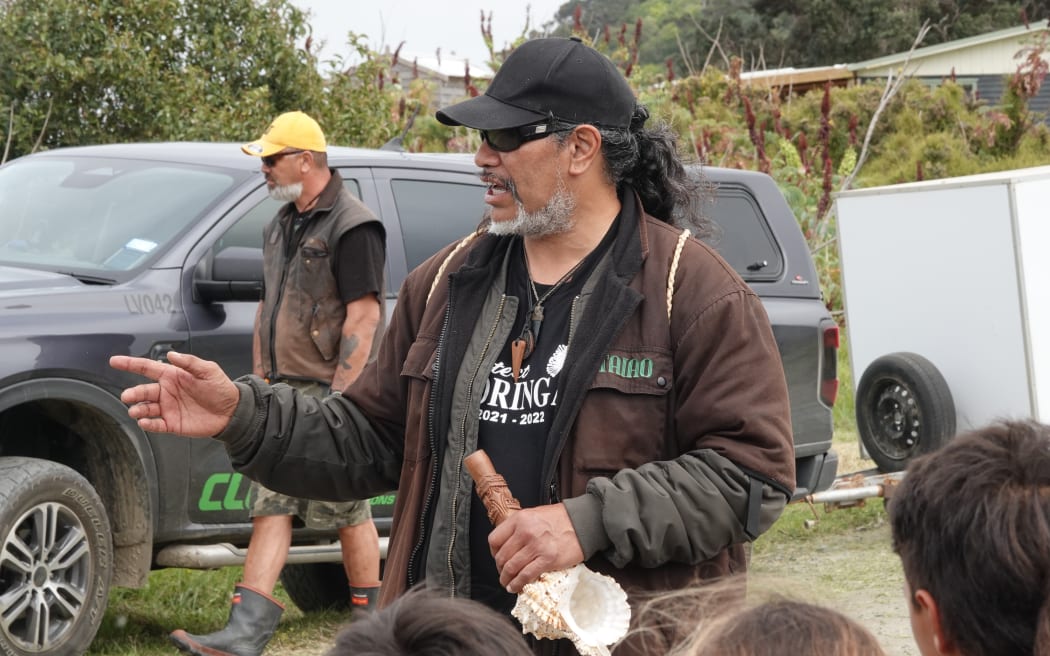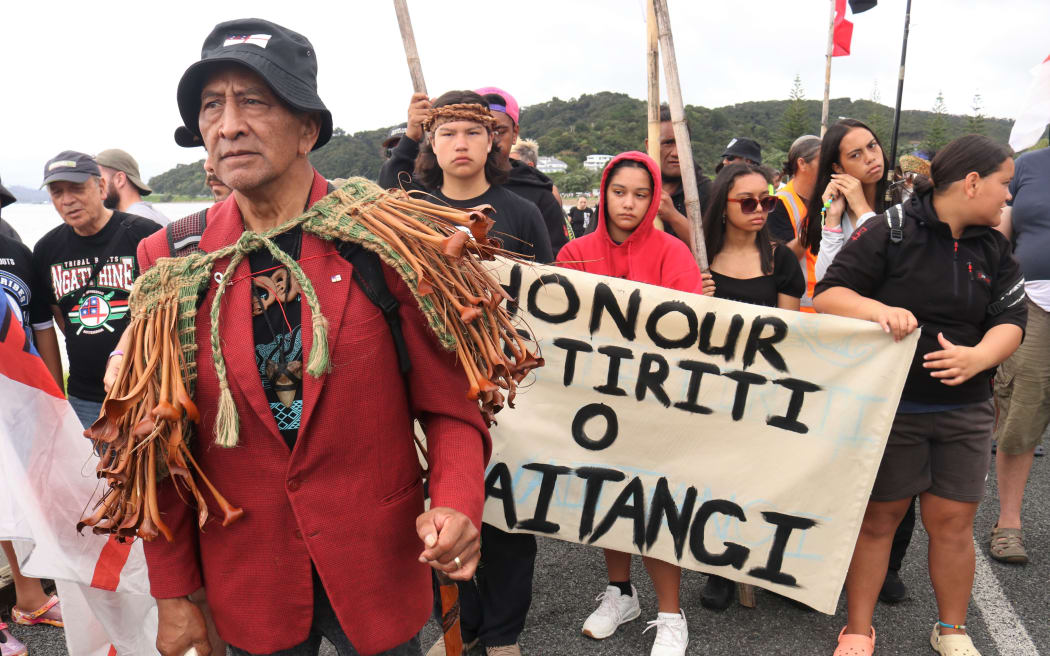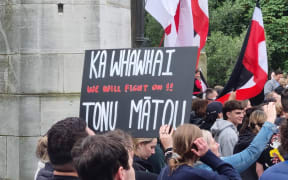
Coordinator Rueben Taipari says the purpose of this year's Hīkoi ki Waitangi is to stand up for Te Tiriti. Photo: RNZ / Peter de Graaf
Controversy over a proposal to redefine the principles of the Treaty of Waitangi is expected to breathe new life into an annual hīkoi from Cape Rēinga to Waitangi.
The hīkoi, or march, has been held almost every year since 1984 though numbers had declined in recent years.
It is likely to get a boost this year thanks to moves by the new government to reduce the use of te reo in the public service, disband the Māori Health Authority, and introduce a Bill to clarify or redefine the existing Treaty principles - which National has said it will support no further than a first reading and select committee.
The hīkoi will start at dawn on 2 February at Te Rerenga Wairua, or Cape Rēinga, and end five days and 200km later on 6 February, in time for participants to join Waitangi Day commemorations.
Organiser Rueben Taipari said this year's theme - like that of the wider Treaty commemorations - was upholding Te Tiriti.
"It's bigger than a few policies. The Treaty is a living, breathing document, so it needs people to participate in its discussion and defence," he said.
"The current government is trying to erase Māori. The purpose of the hīkoi is to raise awareness, to stand up and protect Te Tiriti o Waitangi. They're trying to reduce the capacity for Māori to be Māori, that's what it comes down to."

Kaumātua Ned Peita at the front of last year's Hīkoi ki Waitangi. Photo: RNZ / Peter de Graaf
Taipari would not put a number on the expected size of this year's hīkoi, but said he would not be surprised if it hit 10,000 over the duration of the march.
He said the ACT Party and others were inadvertently helping the cause.
"These fellows, they don't realise they're doing us a favour. Every time they attack the covenant [of the Treaty] they're just making us stronger."
Taipari said it wasn't just Māori concerned about the current government's direction - many Pākehā had had enough of politicians who didn't want Māori to prosper, or who thought it was still the 1900s.
"That time's gone. The Winston Peters, the Don Brashes - they're out of touch. There's a new world. People who can't see that need to move over, because there's a new future, and Te Tiriti is an integral part of that."
Taipari said Māori should be commended for their capacity to use peaceful means of protest such as hīkoi.
Participants will stay at marae along the way and hold rallies in Kaitāia and Taipā.
Rose Raharuhi, who took part in Whina Cooper's 1975 Land March to Parliament, will give a talk during the first night's noho [stay] at Te Hāpua.
The final day, 6 February, will start at 6am at Kawiti Marae, south of Kawakawa, with the group making its way to Tou Rangatira, a series of carvings next to Waitangi's Te Tii Marae at 9am.
The final stage of the hīkoi will involve a walk up the hill to Te Whare Rūnanga [the carved meeting house] at the Treaty Grounds.





